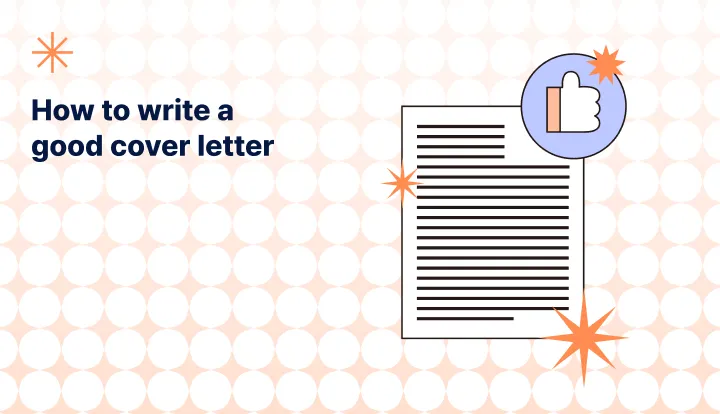Cover Letter Secrets Top 7 Tips!
In the competitive world of job hunting, a well-crafted cover letter can be your golden ticket to landing an interview. Often overlooked, the cover letter provides a crucial opportunity to showcase your personality, skills, and enthusiasm, setting you apart from other applicants. This guide reveals seven essential secrets to creating a compelling cover letter that grabs the attention of hiring managers and significantly increases your chances of getting hired. From understanding its fundamental purpose to mastering the art of formatting and follow-up, each tip is designed to transform your job application into a powerful tool for career success.
Understanding the Purpose of a Cover Letter
Before diving into specifics, it’s essential to grasp the core purpose of a cover letter. It’s more than just a formality; it’s your first chance to introduce yourself, make a strong impression, and convince the employer that you’re the right fit for the role. A well-written cover letter should complement your resume by highlighting your relevant skills and experiences, explaining why you’re interested in the specific position and company, and demonstrating your understanding of their needs. It bridges the gap between your qualifications and the company’s requirements, making a compelling case for why they should invite you for an interview. Understanding this purpose will guide you in structuring your letter effectively and ensuring it aligns with your career goals.
Why Cover Letters are Important
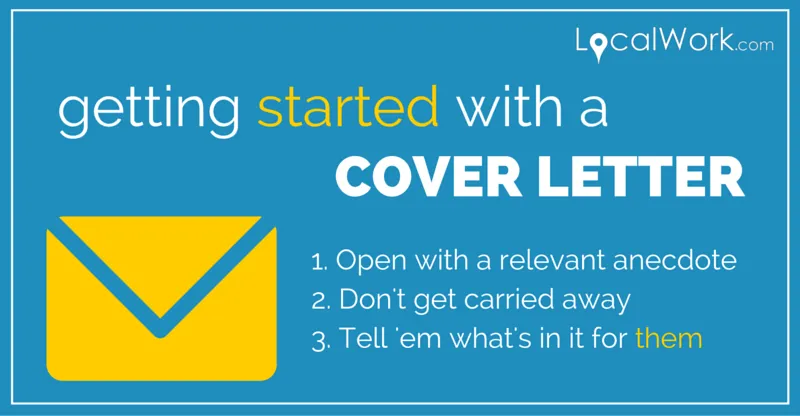
Cover letters are important because they provide context and personality that a resume often lacks. They allow you to expand on your achievements, explain career transitions, and address any potential gaps in your employment history. They also offer a unique opportunity to demonstrate your written communication skills, which are valuable in nearly every professional setting. A cover letter proves you have taken the time to understand the company and the specific role you are applying for, showing genuine interest and initiative. Moreover, it allows you to showcase your soft skills, such as your ability to work in a team, your problem-solving capabilities, and your adaptability, which are crucial for success in any job.
What to Include in a Cover Letter
A great cover letter should include a clear introduction, a body that highlights relevant skills and experiences, and a strong conclusion with a call to action. Start with a compelling opening that grabs the reader’s attention and states the position you’re applying for. In the body, connect your skills and experiences to the job requirements, providing specific examples of your accomplishments. Use action verbs to describe your past responsibilities and achievements. Conclude by reiterating your interest in the role and expressing your eagerness for an interview. Always tailor the content to match the job description and the company’s values. Avoid generic statements and focus on what makes you unique and valuable to the potential employer.
Researching the Company
Before you start writing, research the company and the specific role thoroughly. This step is crucial because it shows your genuine interest and allows you to tailor your letter effectively. Visit the company’s website, read news articles about them, and explore their social media profiles. Understand their mission, values, and recent projects or initiatives. Identify what the company is looking for in a candidate by carefully reviewing the job description. Then, in your cover letter, demonstrate how your skills and experiences align with the company’s needs and culture. This shows the hiring manager that you have taken the time to learn about their organization and are genuinely interested in contributing to their success.
Tailoring Your Cover Letter
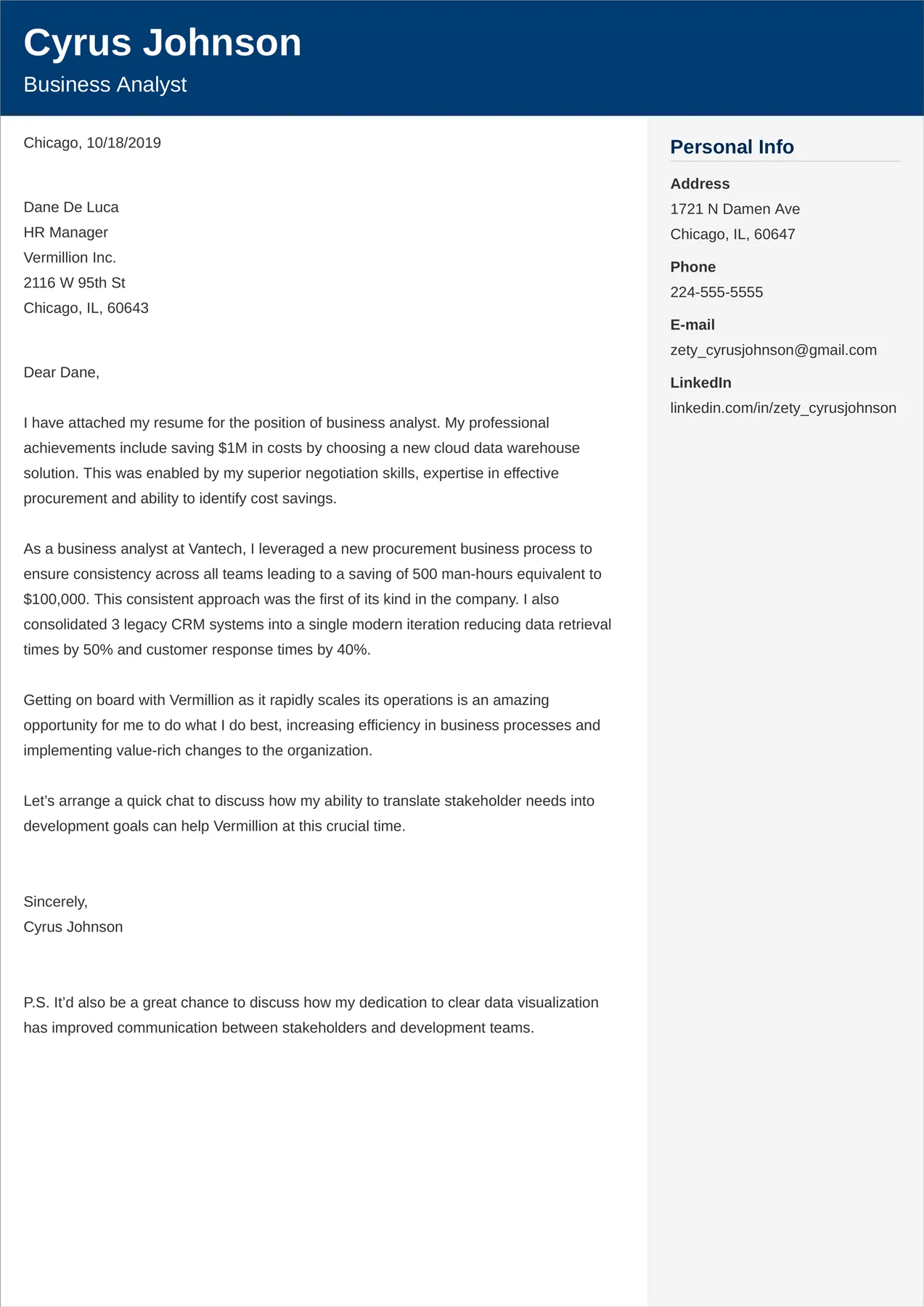
One of the biggest mistakes job seekers make is sending out generic cover letters. Each cover letter should be tailored to the specific job and company. This means customizing the content to reflect the requirements of the role and the values of the organization. Review the job description carefully and identify the key skills and qualifications the employer is seeking. Then, in your cover letter, highlight your relevant experiences and achievements, providing specific examples that demonstrate your capabilities. Avoid using generic phrases and instead, use the company’s language and show that you understand their needs. Tailoring your cover letter demonstrates your attention to detail and your commitment to the opportunity, making a positive impression on the hiring manager.
Highlighting Relevant Skills and Experiences
Your cover letter should highlight the most relevant skills and experiences from your resume that align with the job requirements. Don’t just list your skills; demonstrate them by providing specific examples of how you have used those skills in previous roles. Quantify your achievements whenever possible, using numbers and data to illustrate your impact. For example, instead of saying “Managed social media,” say “Increased social media engagement by 40% in six months.” This shows the hiring manager not only what you’ve done but also the positive outcomes you’ve achieved. By focusing on the most relevant aspects of your background, you create a clear and compelling picture of why you’re the best candidate for the job.
Quantifying Achievements
Quantifying your achievements is a powerful way to make your cover letter more impactful. Instead of just stating what you did, use numbers, percentages, and data to illustrate the results you achieved. For example, if you improved sales, specify the percentage increase and the timeframe. If you saved the company money, state the amount. If you improved customer satisfaction, provide the percentage of improvement. Quantifying your achievements provides concrete evidence of your abilities and makes your accomplishments more credible. It also helps the hiring manager understand the value you can bring to the role. Always aim to support your statements with tangible results to showcase your impact effectively.
Using Action Verbs
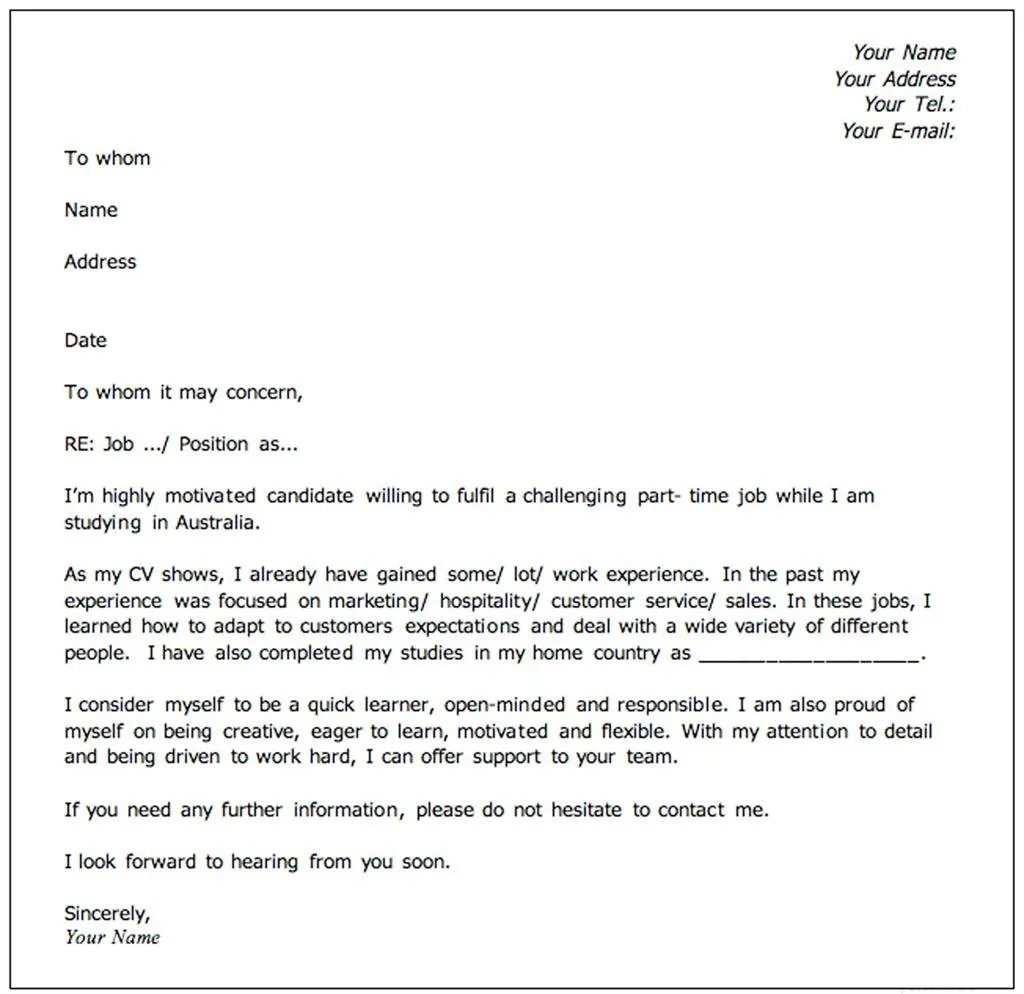
Using strong action verbs is essential for making your cover letter dynamic and engaging. Action verbs describe the actions you took in your previous roles, bringing your experiences to life. Start your bullet points and descriptions with verbs like “managed,” “developed,” “implemented,” “achieved,” “led,” “created,” or “improved.” These verbs give the reader a clear picture of what you accomplished and how you contributed to your previous employers. Avoid passive language and focus on active verbs that demonstrate your capabilities and initiative. Using action verbs makes your cover letter more concise and impactful, helping you stand out from other applicants. They make your accomplishments more memorable and emphasize your role in achieving positive outcomes.
Showcasing Personality and Enthusiasm
While your cover letter should be professional, it’s also an opportunity to showcase your personality and enthusiasm for the role and the company. Let your genuine interest shine through by expressing why you’re excited about the opportunity and what you find appealing about the company. Use a warm and engaging tone, and avoid sounding overly formal or robotic. Your personality should complement your qualifications, demonstrating that you’re not just a qualified candidate but also a good cultural fit. However, maintain a professional tone throughout. The goal is to strike a balance between professionalism and personality to create a memorable and positive impression.
Proofreading and Editing
Proofreading and editing your cover letter is a non-negotiable step. Errors in grammar, spelling, or punctuation can make a negative impression and undermine your credibility. Before submitting your cover letter, carefully review it for any mistakes. Read it aloud to catch errors that you might miss when reading silently. Ask a friend, family member, or career advisor to review your letter as a fresh pair of eyes often catches mistakes that you might overlook. Ensure your formatting is consistent and that the layout is clean and easy to read. A polished and error-free cover letter demonstrates your attention to detail and professionalism.
Formatting and Presentation
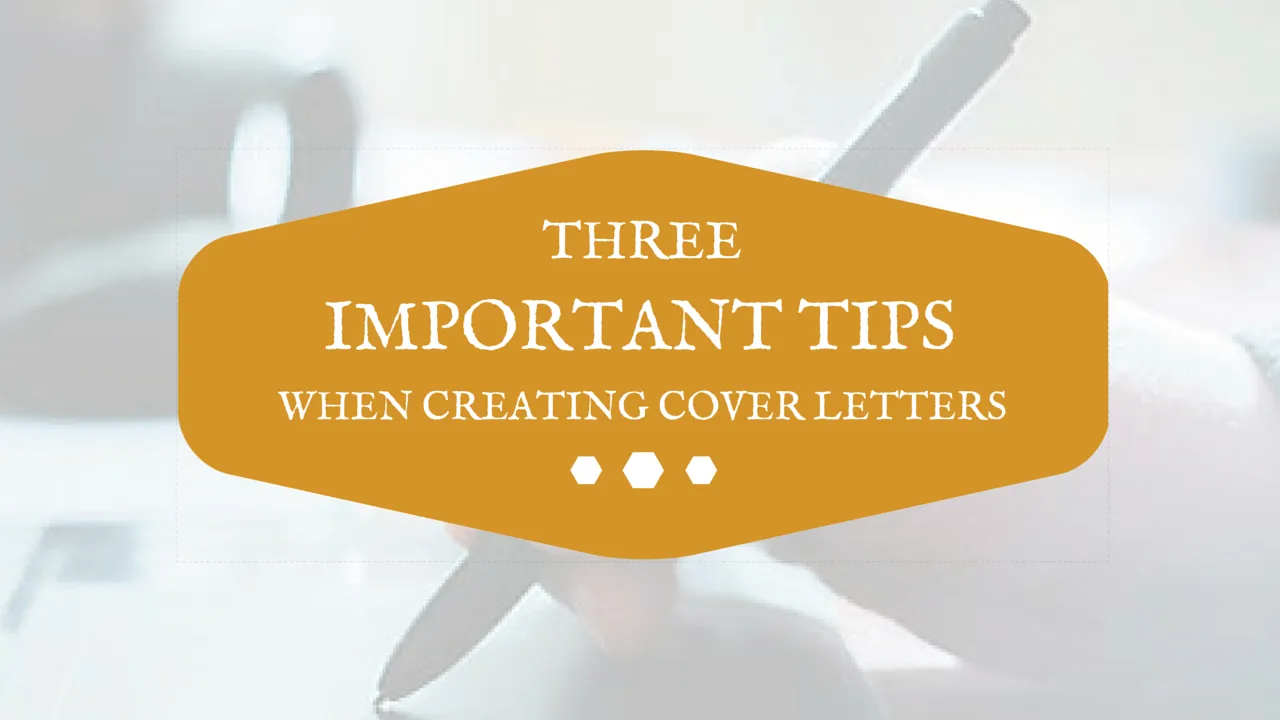
The formatting and presentation of your cover letter are just as important as its content. Ensure your letter is easy to read and visually appealing. Use a professional font like Times New Roman, Arial, or Calibri, and maintain a consistent font size throughout. Use appropriate margins and spacing to ensure the text is not cramped. Break up large blocks of text with bullet points or short paragraphs. Use a clear and concise writing style and avoid jargon. Ensure your name, contact information, and the date are clearly visible at the top. The overall presentation should be professional, organized, and reflect your attention to detail.
Call to Action and Closing
Your cover letter should end with a strong call to action and a professional closing. In your call to action, explicitly state that you are eager to discuss your qualifications further and that you look forward to the opportunity to interview. Thank the hiring manager for their time and consideration. Avoid generic closings like “Sincerely.” Instead, use professional closings like “Best regards,” “Sincerely,” or “Kind regards.” Make sure your contact information is readily available, making it easy for the hiring manager to reach you. A strong and confident closing reinforces your interest and initiative, leaving a lasting positive impression.
Following Up After Submission
Following up after submitting your cover letter is a proactive step that demonstrates your continued interest in the role. Typically, you should follow up with the hiring manager or the recruiter within a week or two after submitting your application. Send a brief and polite email reiterating your interest, referencing the position, and expressing your eagerness to discuss your qualifications further. Avoid being overly persistent, but showing that you are serious about the opportunity can positively influence the hiring process. Be sure to keep your follow-up email concise, professional, and free of errors. This small gesture can distinguish you from other candidates and increase your chances of getting an interview.
